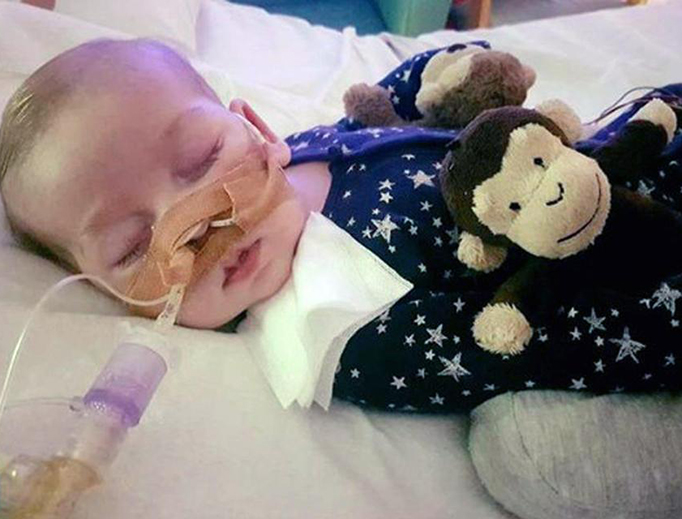This is Why Charlie Gard Matters
Who decides whose life is worth living?

Charlie Gard's parents have dropped the petition to treat their child in the United States, stating that endless delays have pushed him past the point of even the possibility of recovery.
So a child will die. A child that possibly didn't need to. Why should we care?
We should care because this case has all the earmarks of a political power struggle. But with a body count. I can't help but feel that pride played a large part in these decisions. People with some modicum of power dug their heels in further and further because they dug their heels in earlier and forgot how to undig.
We should care because on one side we had parents who loved and cared for this beautiful child and on the other we had bureaucrats. And the bureaucrats won.
We should care because a life, a human life, had a small chance of living stripped because some believed his quality of life wouldn't be high enough to deserve living. Other experts disagreed. But they were, in the end, ignored.
We should care because either human life is sacred or it isn't. We should care because if we believe life is worth fighting for then ALL LIFE must be worth fighting for - regardless of disability.
We should care because those who argued that the disabled patient's life was no longer worth living were victorious over the baby's parents "who loved him so very dearly" and "fought so hard for him."
In the end, we should care because we don't believe that life can be measured by an actuarial table or a cost-benefit analysis.
This is a story about parental rights; about how two parents' decision was ignored by those in the department of "those who know better." But this is also a story about how the fate of a baby boy captured the attention of the world. This is a story about England, Europe, and Western civilization and the path they've decided on.
This is a story how even the White House and the Vatican standing together were unable to prevent this utilitarian tragedy from occuring.
But mostly this is a story about a young baby boy who was loved by a mother and a father; a mother and father who wished to give their son a chance to live. A chance. Someone said to me that the interesting thing about this story is that both sides believe they're the good guys. Everyone, she said, is looking out for the best interest of the child. All sides claim "compassion." But hasn't that been the case more often than not? In most civilizational struggles, don't both sides believe they're right. But, in the end, it's a case of priorities. Is the priority human life or is it deciding who costs too much to keep alive or what life is worth living? Were the priorities of those who believed it best to remove baby Charlie Gard from life-support truly love for this particular child or was it a concern about precedent and what would happen in the future should this case be decided a different way? Was Charlie on their mind or were they just pointing to a patient's statistical chances. Were they deciding that he would never have a quality of life that makes life worth living? When governments begin to decide whose life is worth living, I get nervous.
To me, I feel like the bad guys won today. For me, I stand with Charlie Gard. I stand with life. And I kneel down before God to pray for Charlie Gard, his poor grieving parents, and a world where this is seen as compassion.













